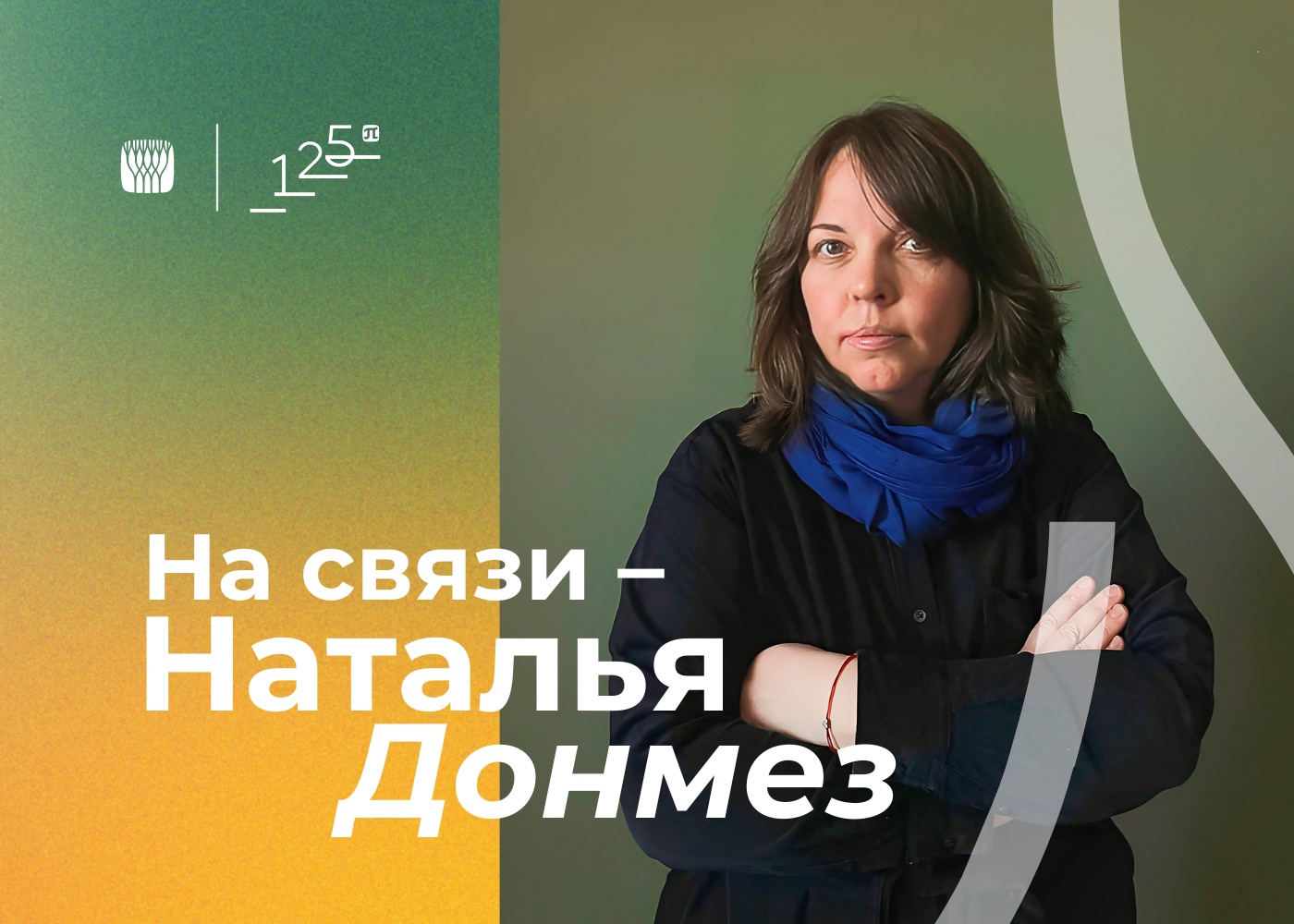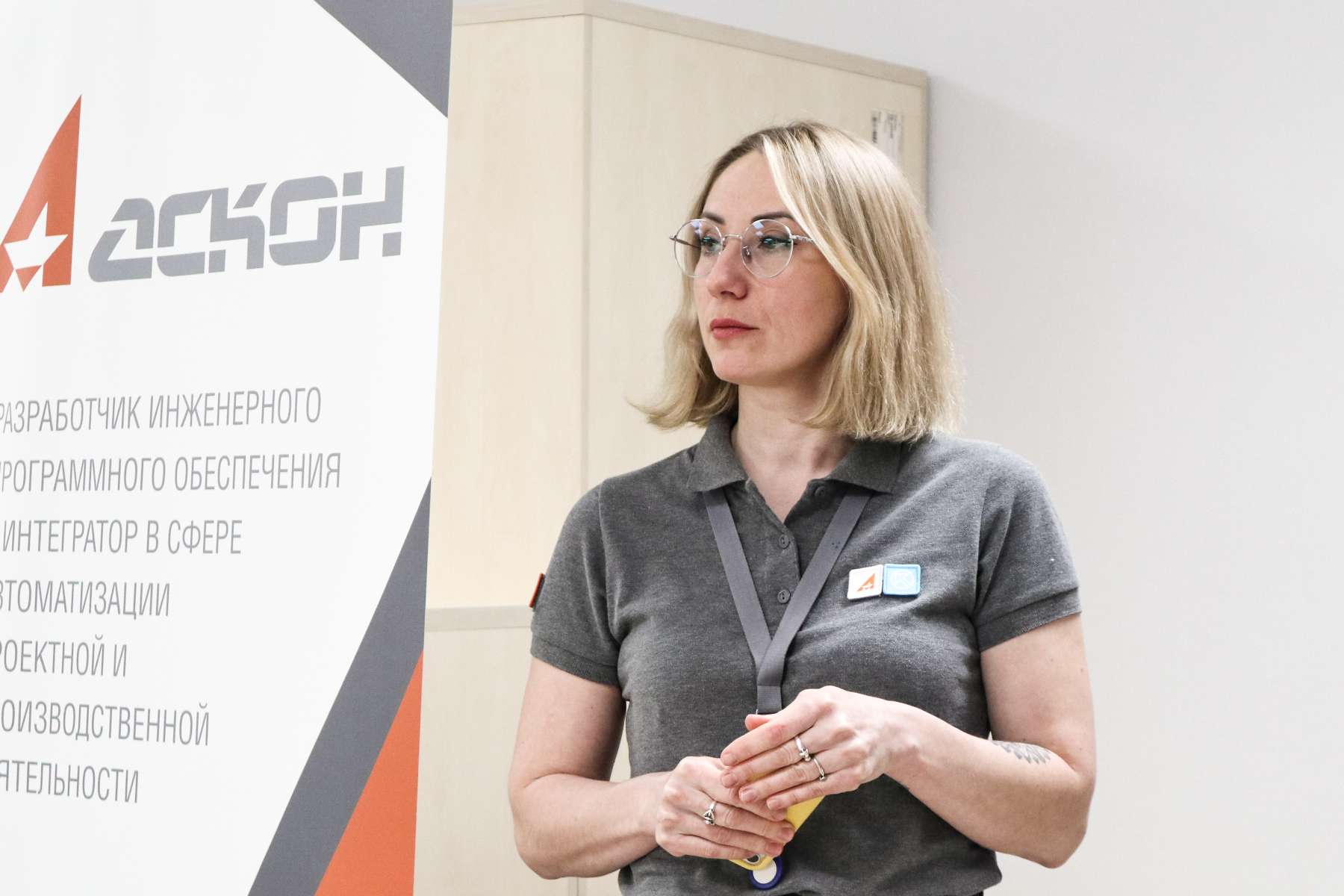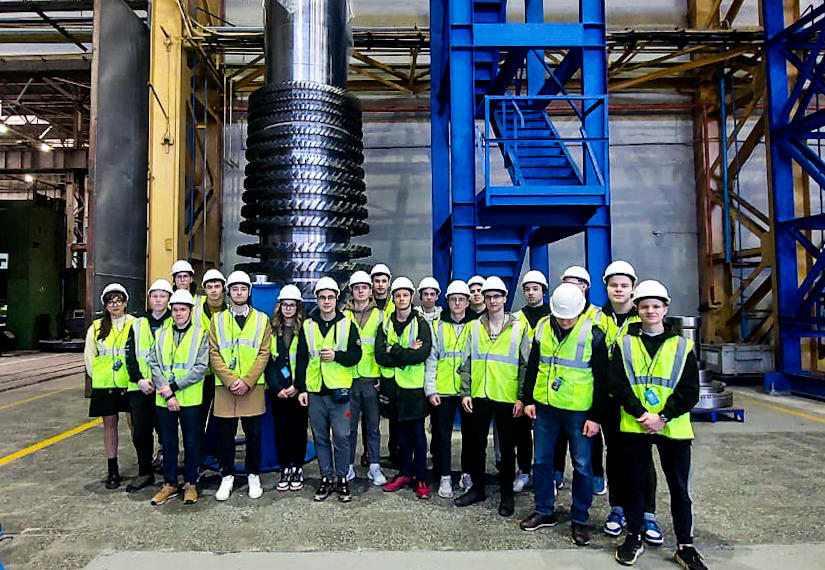
The heroine of our new interview is a bright, talented, creative and very inspiring person — Natalia Yurievna Donmez. We will talk about how to manage everything on your to-do list, how to study and teach, how to look at the educational process outside the box and how to attract foreign students to Russia.
Natalia Yurievna, please tell us about your life path from school to work at the Polytechnic University. How did you get here and why did you decide to stay?
— I graduated from an English school No. 185 on Shpalernaya Street. Creative teachers, Salinger's 'Catcher in the Rye' instead of an English textbook, annual theatre performances, PE in Tauride Garden. Although Polytechnic University is the alma mater of my parents and many other members of our family, I am 99% a person of Human Sciences. I chose the Institute of my childhood — Herzen State Pedagogical University. As a bonus to the speciality of an English teacher, I can determine the speed of a river, a tree by its bark, birds by their voices and I am well versed in children's literature, I collect works of children's book illustrators.

Thanks to Turkish students, I came to the Polytechnic University. In 2015, the first group of future physicists of the Turkish nuclear power plant Akkuyu arrived and I was invited to help them adapt to the university. Then, there was a participation in the Winter and Summer Schools, international master's programmes, the festival of Turkish culture at the Polytechnic University, work in the media department of the Energy Institute - a lot of non-standard creative work, that's what I like.
Although, you are not an energy engineer, you work and teach students of technical majors. What courses do you hold and are there any differences in teaching human sciences and technical students?
English is a tool for communication. You can discuss the efficiency of heat pumps or talk about the poetry of an Ottoman Diwan*
The same skills are needed: speaking, comprehension, writing and only vocabulary is different. My mother designed the plant in Sosnovy Bor and the Tianwan Nuclear Power Plant, my father wrote a PhD thesis about vortex boilers - energy has always been a familiar topic, and it is not difficult for me to prepare educational materials for students of our institute.
*Diwan - is a collection of poems by one author in the literature of Middle East, North Africa and South Asia.

In your lectures and practical classes, you are often guided by the techniques and materials of the world's leading universities. How do you learn about all the tricks of the trade, where do you draw inspiration from and what do students think about non-trivial classes?
— I have been teaching English for 26 years, but every new course, every new group is an excitement and additional preparation. I keep in touch with colleagues in different countries, read scientific publications and Telegram channels. I am open to learning something new, and this helps to find motivating tasks. Students often talk about interesting apps or websites for learning languages.
Students see classes differently, some are interested, but for some it's just another non-core subject on the schedule.
In addition to teaching, you devote a lot of time to the international activities of the Institute. You supervise international master's programmes, coordinate a chat with Turkish students, conduct interviews with applicants, deal with a lot of paperwork. What skills and competencies do you need to have to cope with such multitasking? Is there time for tea (by the way, which one do you like the most?)
— In my work, my knowledge of English and Turkish, the desire to help people, the ability to switch from one task to another, and my interest in different cultures came in handy. A couple of years ago I completed an online course on clerical work.
In Istanbul, my colleagues and I used to have a tradition of drinking tea in the university garden after class. What an opportunity it is to switch off for a while from the flow of tasks, feel the wind from the Bosphorus, the cries of seagulls, Mistik Chai in paper cups. Since then it has been my favourite tea.
At the Polytechnic University, schedules rarely coincide with colleagues, I am glad when there is time to meet and talk. For such an occasion, I always have a stock of Mistik Chai from Turkey.

Natalia Yurievna, you lived and taught in Turkey for many years. What is the fundamental difference between the Russian education system and the Turkish one, and what would you like to borrow from your Turkish colleagues? Students are probably the same everywhere, aren't they?
– In Turkish universities there is a foundation year, where you immerse yourself in studying English for a year, and in the bachelor’s degree, all attention is focused on specialised disciplines.

I was lucky enough to work at the new private İstanbul 29 Mayıs University. Together with colleagues, we compiled a curriculum, wrote programmes, planned what results we wanted to achieve and how. Each teacher had mandatory office hours for consultations, and any student could come and discuss what was important. The university administration supported the initiatives - do you want to organise a photo club? yes, sure! an exhibition in the university garden? yes, piece of cake!
And the students really are the same everywhere, the Turkish are just a little louder.
Ray Bradbury once said that we have 'Off hours, yes. But time to think?' What is your take on this, especially considering the number of tasks to be solved and the modern pace of life?
What do I spend my free time on? I do different things: photography, ceramics, linocut, exploring the city, reading, going to concerts, singing in the choir. The days are passing fast. I'm in search of balance. Sometimes I set my alarm a couple of hours early so that I have time to think in silence.
Natalia Yurievna, we are glad that such active and interesting people as you work at the Institute of Energy. Thank you for the great interview! We wish you energy and inspiration!




